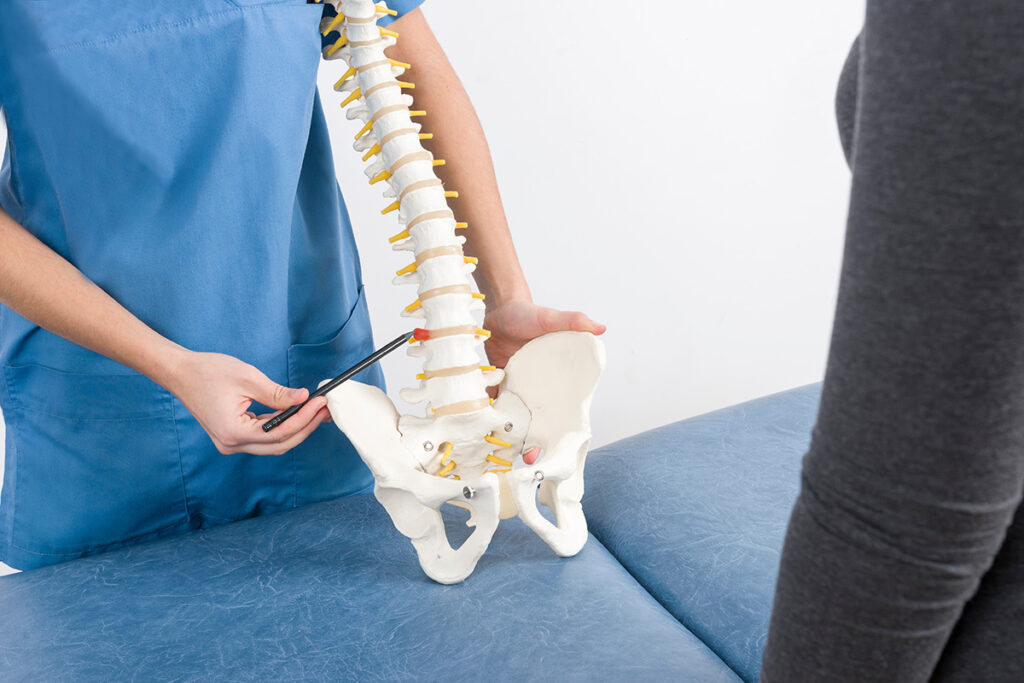
Everything You Need to Know About Herniated Discs:
Treatment Options, Activities to Avoid, and More
When you experience back or neck pain and the pain is mild, it’s easy to put off seeing a doctor in hopes the pain goes away. When the pain becomes chronic, worsening, or debilitating, or it begins to negatively impact day-to-day activities, it’s time to seek advice from a medical professional. One potential source of the pain? A herniated disc.
What is a Herniated Disc?
A herniated disc is a condition where the jelly-like material inside the spinal cord pushes through a crack in the outer layer of the disc. It can occur anywhere along the spine but most commonly occurs in the lumbar (lower back) region. This can cause pain, numbness, and tingling sensations in your back, arm, or leg, depending on its location. There are treatment options for herniated discs as well as long-term effects of untreated herniated discs.
What causes a Herniated Disc?
Disc herniation can be caused by:
- Gradual wear-and-tear due to age (disk degeneration)
- Lifting heavy objects using back muscles instead of leg muscles
- Twisting or turning while lifting
- Repetitive motions that involve lifting, pulling, pushing, bending sideways and twisting
- A traumatic injury, such as a fall or car accident
Excessive weight, smoke, frequent long periods of remaining sedentary, and genetics can all increase your risk of a herniated disc.
How do you treat a Herniated Disc?
There are a few different treatment options for herniated discs. Physical therapy, epidural injections, and surgery are all options. The type of treatment will depend on the severity of the herniation and the amount of pain you are in.
Physical therapy can help a herniated disc in a few different ways. A physical therapist can recommend specific exercises to help strengthen your lower back, improve your range of motion, and increase flexibility. This will help you to be able to do more activities without pain. Physical therapy can also help to improve your posture and alignment.
Epidural injections are another treatment option. These injections are given into the space around the spinal cord to reduce inflammation.
Surgery is recommended when nonsurgical treatments don’t relieve the pain or for those experiencing:
- muscle weakness
- pain that persists over time
- mobility issues
- problems with bladder or bowel control
Surgery can be done to remove the herniated disc or to fuse the disc together.
Activities to Avoid with a Herniated Disc
There are several activities that you will want to avoid if you have a herniated disc. These activities include:
- Lifting heavy objects
- Bending over
- Sitting for long periods of time
- Twisting your back
You will also want to avoid activities that make your pain worse.
If Left Untreated, What Happens?
A herniated disc can lead to more serious injuries if left untreated, such as:
- Nerve damage
- Paralysis
- Loss of bladder or bowel control
If you are experiencing any of these symptoms, it is important to see a doctor right away. Herniated discs can be treated and you can avoid serious long-term effects.
Learn more about our services. Or call our office at (716) 881-0382 to schedule a consultation.



